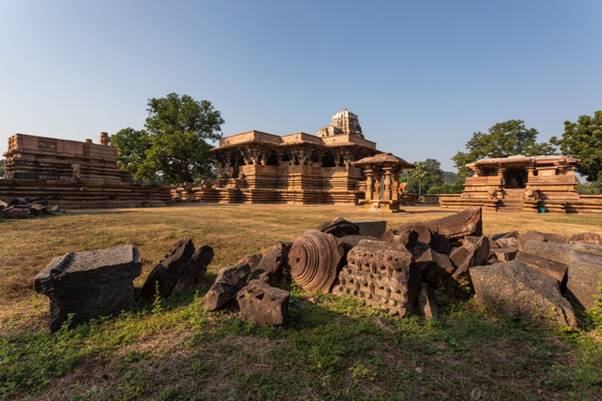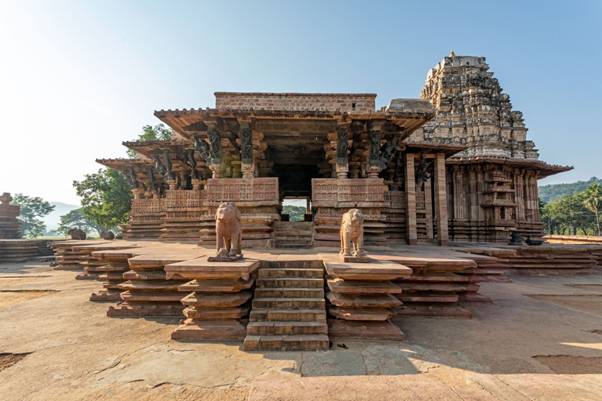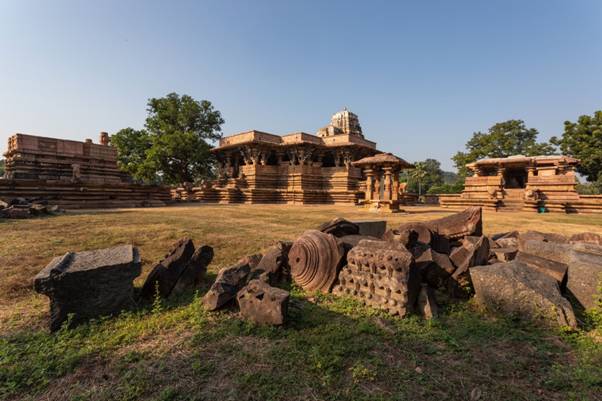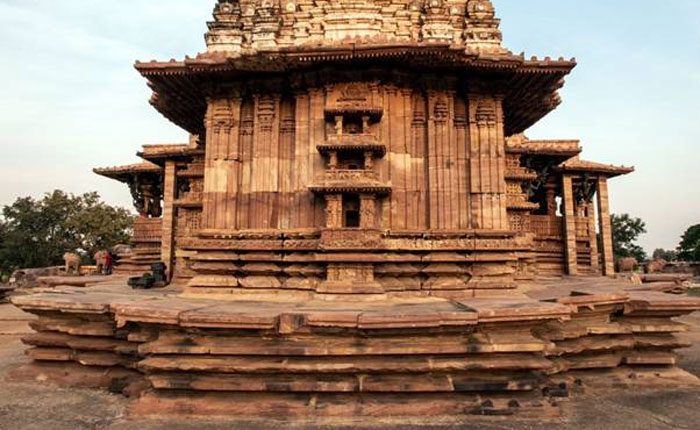Rudreswara Temple (Ramappa Temple) at Palampet, Warangal, Telangana inscribed on UNESCO’s World Heritage List
New Delhi/Kalinga Voice
In yet another landmark achievement, India’s nomination of Rudreswara Temple, (also known as the Ramappa Temple) at Palampet, Mulugu district, near Warangal in the state of Telangana has been inscribed on UNESCO’s World Heritage list. The decision was taken at the 44th session of the World Heritage Committee of UNESCO today. Ramappa temple, a 13th century engineering marvel named after its architect, Ramappa, was proposed by the government as its only nomination for the UNESCO World Heritage site tag for the year 2019.
“Just inscribed as World Heritage Site: KakatiyaRudeshwara (Ramappa) Temple, Telengana in India. Bravo! “ UNESCO announced in a tweet today.
The Prime Minister, Shri Narendra Modi has expressed happiness on UNESCO declaring KakatiyaRamappa Temple a World Heritage site. He also urged the people to visit this majestic Temple complex and get a first-hand experience of it’s grandness.
Reacting to a tweet by UNESCO, the Prime Minister said; “Excellent! Congratulations to everyone, specially the people of Telangana.
The iconic Ramappa Temple showcases the outstanding craftsmanship of great Kakatiya dynasty. I would urge you all to visit this majestic Temple complex and get a first-hand experience of it’s grandness.”

The Union Minister of Culture, Tourism and Development of North Eastern Region (DoNER) Sri G Kishan Reddy thanked the Prime Minister Narendra Modi for his guidance and support as the United Nations Educational, Scientific and Cultural Organization (UNESCO) conferred the World Heritage inscription to Rudreswara Temple, (also known as the Ramappa Temple) at Palampet, Mulugu district, near Warangal in the state of Telangana.
“It gives me immense pleasure to share that @UNESCO has conferred the World Heritage inscription to Ramappa Temple atPalampet, Warangal, Telangana. On behalf of the nation, particularly from people of Telangana, I express my thanks to Hon’ble PM @narendramodi for his guidance & support”tweeted G Kishan Reddy
The Minister also took the opportunity to congratulate the entire team of the Archaeological Survey of India (ASI) and also thanked the Ministry of External Affairs.“I congratulate the entire team of @ASIGoI for their untiring efforts towards making the Ramappa Temple a World Heritage Site. I would also like to thank the Ministry of External Affairs for their efforts under the guidance of Hon’ble PM @narendramodi”

Shri G Kishan Reddy Minister observed that owing to the COVID-19 pandemic, the meeting of the World Heritage Committee(WHC) of UNESCO could not be conducted in 2020 and the nominations for 2020 and those for 2021 were discussed in a series of online meetingsthat are currently underway. The discussion on Ramappa Temple took place on Sunday, the 25th July 2021.
Sh Reddy stated that there were 21 Members in the World Heritage Committee with China currently as the Chair of the Committeeand creditedthe the success to the goodwill that PM Narendra Modi has built with UNESCO member countries during his tenure.
A brief description on the Rudreswara(Ramappa) Temple
The Rudreswara temple was constructed in 1213 AD during the reign of the Kakatiya Empire by RecharlaRudra, a general of Kakatiya king Ganapati Deva.The presiding deity here is RamalingeswaraSwamy. It is also knownas the Ramappa temple, after the sculptor who executed the work in the temple for 40 years.

The temple complexes of Kakatiyas have a distinct style, technology and decoration exhibiting the influence of the Kakatiyan sculptor. The Ramappa Temple is a manifestation of this andoften stands as a testimonial to the Kakatiyan creative genius. The temple stands on a 6 feet high star-shaped platform with walls, pillars and ceilings adorned with intricate carvings that attest to the unique skill of the Kakatiyan sculptors.
The sculptural art and decoration specific to the time and Kakatiyan Empire have an outstanding universal value. The distinct style of Kakatiyas for the gateways to temple complexes, unique only to this region confirm the highly evolved proportions of aesthetics in temple and town gateways in South India.
European merchants and travelers were mesmerized by the beauty of the temple and one such traveler had remarked that the temple was the “brightest star in the galaxy of medieval temples of the Deccan”.

